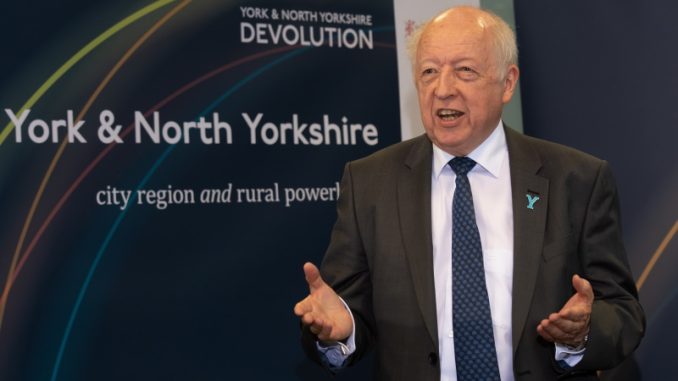
A proposed devolution deal, including creating an elected mayor and a mayoral combined authority for North Yorkshire and York, looks set to receive sufficient public support to progress transferring government powers from Westminster.
James Farrar, chief officer of the North Yorkshire and York Local Enterprise Partnership, has told a meeting of council leaders with just seven days of an eight-week consultation remaining, the majority of respondents had backed the proposed deal.
Mr Farrar’s comments to a meeting of North Yorkshire and York’s council leaders follow some anxiety and uncertainty being expressed privately by those behind the proposed deal, particularly after apparent strong public opposition to creating a mayoral combined authority in Cornwall threw the devolution process there into uncertainty.
In recent months, North Yorkshire and York councils have put effort into promoting the benefits of the deal.
Although some high-profile opposition councillors have branded the proposals undemocratic and unrepresentative, during the eight-week consultation there has not been a concerted campaign opposing the deal.
Mr Farrar said the support rate for the devolution deal, which was unveiled on Yorkshire Day in August and includes a £540m investment fund to be spent over 30 years on local priorities, had varied little throughout the exercise. adding: “It gives us a good indication of where we will be with a week to go.”
Although North Yorkshire and York’s combined population totals significantly above 800,000 residents, Mr Farrar described the 1,750 replies to the consultation so far as “a really good response rate” compared to similar devolution surveys in other areas.
He said importantly, the responses had come from all parts of the county and York.
Mr Farrar told the meeting the strongest support for the devolution deal was for the mayoral combined authority to directly engage with government over creating the country’s first net zero region, initiative to tackle climate change and the promotion of landscape restoration schemes.
He said there was also strong support for devolving transport powers, such as giving an elected mayor functions such as powers to introduce bus franchising and the combined authority powers to set up and coordinate a key route network.
Mr Farrar said: “Not surprisingly, the area which is of most concern – and it is still more than against – is the financial powers.”
The consultation highlights that the mayor would have the power to set a precept on council tax to fund mayoral functions as well as the power to introduce a supplement on business rates for expenditure on projects that will promote economic development.
Mr Farrar said the National Institute for Consultation would independently analyse responses to the consultation, which would be presented to both councils in February for them to decided whether to proceed with the devolution deal.


Be the first to comment